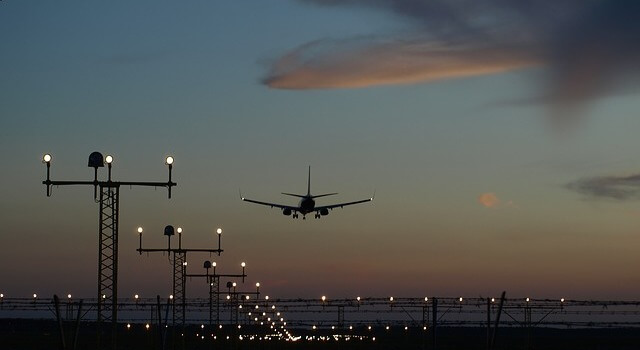Airlines will have to mandatorily share details of international travellers with Indian Customs authorities, reported the Economic Times on December 31.
The Government will be implementing the regulations in a structured timeline, with airlines operating to and from India needing to register with the National Customs Targeting Centre-Passenger (NCTC-Pax) by January 10, 2025. A pilot phase will begin with willing airlines by February 10, 2025, followed by full implementation for individual airlines on April 1. Airlines operating through global distribution systems (GDS) will need to comply by June 1, 2025.
The airlines will need to share details like name, mobile number, payment details and travel itinerary of international passengers. Non-compliance will result in penalties ranging from Rs 25,000 to Rs 50,000 per violation.
Airlines will have to provide passenger information 24 hours before the departure of both inbound and outbound flights, including the name of the passenger, contact details, billing/payment information (credit card number), date of issuance of ticket as well as intended travel, and names of other travellers in the same PNR, travel itinerary for the PNR, details of travel agency, baggage information and code share information (when one airline sells seats on another air carrier’s flight).
Background:
The government had previously notified the Passenger Name Record Information Regulations in August 2022, which established a framework for collecting international air passenger information. These regulations were meant to “enhance detection, interdiction and investigative capabilities of Customs Authorities” when dealing with the smuggling of drugs, arms and other contraband.
Under these regulations, airlines must electronically transmit passenger information to customs systems using the standardized PNRGOV EDIFACT message format. Passengers do not have to submit any additional information beyond what airlines have already collected.
The regulations prohibit processing information to reveal sensitive details like ethnicity, race, religious beliefs, or health status. Only senior officers at the Principal Additional Director General or Additional Director General level can process the collected information. The authorities can store the data for five years at the most before disposing of it through depersonalisation or anonymisation.
Did Tax Authorities Tap Into Digi Yatra?
On December 30, the New Indian Express had reported that the income tax department had accessed Digi Yatra’s passenger database in an attempt to single out tax evaders. According to the report, the tax department is planning to reconcile the Digi Yatra database with tax filings, hoping to spot those who have underreported their income. “Frequent or high-value travel, particularly international trips, could flag individuals whose reported earnings do not justify such expenditures, prompting further scrutiny,” said the report.
However, the Digi Yatra Foundation criticised the story, terming it to be false. It stated that Digi Yatra stores all information on the user’s device and lacks a central repository of data. “There is no mechanism for data sharing with third parties, and no MoU exists between Digi Yatra Foundation and the Income Tax Department,” said the organisation.
Advertisements
Why This Matters:
Requiring airlines to share personal information and other details of international passengers raises a number of concerns. Would airlines ask passengers for additional consent before sharing it with Indian authorities? How would international airlines manage this data transfer requirement while complying with the existing data protection regulations in their jurisdiction?
For example, the GDPR requires cross-border data transfers to be in line with general data protection principles like data minimisation. Further, the European Commission also adopts “adequacy decisions” when it comes to foreign nations, which indicate that the level of data protection in data jurisdiction is equivalent to that in the EU. India is not currently in this list of nations.
Further, the customs department has also not offered sufficient clarity about their use of passenger data. While a press release from 2022 stated that the data will be used for “analytics by the Customs Risk Management System,” the precise nature of these “analytics” has not been revealed. Keeping the principle of “data minimisation” in mind, one has to question how personal information like mobile phone numbers or credit card details will help customs risk management.
Also Read:
Support our journalism:

